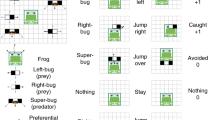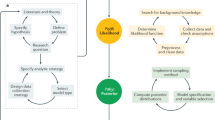Abstract
THE discussion in NATURE under the above heading appears to me to be based in large measure upon failure to realise the character of scientific knowledge. Such misunderstanding is to be deprecated as being contrary to the interests of further progress in biology. I beg leave, therefore, to reiterate that scientific hypotheses, otherwise known as laws of Nature, are created by the mind of man for purposes of prediction and generalisation. They do not represent absolute truth, and are always liable to be superseded by new hypotheses which are more widely embracing. The Mendelian laws are no exception. So long as these laws fulfil the function of helping men of science to generalise and to predict they may be held to reflect definite degrees of reality. If, however, they fail to serve this purpose they have no logical justification.
This is a preview of subscription content, access via your institution
Access options
Subscribe to this journal
Receive 51 print issues and online access
$199.00 per year
only $3.90 per issue
Buy this article
- Purchase on Springer Link
- Instant access to full article PDF
Prices may be subject to local taxes which are calculated during checkout
Similar content being viewed by others
Author information
Authors and Affiliations
Rights and permissions
About this article
Cite this article
MARSHALL, F. Biological Fact and Theory. Nature 119, 563 (1927). https://doi.org/10.1038/119563b0
Published:
Issue Date:
DOI: https://doi.org/10.1038/119563b0
Comments
By submitting a comment you agree to abide by our Terms and Community Guidelines. If you find something abusive or that does not comply with our terms or guidelines please flag it as inappropriate.



